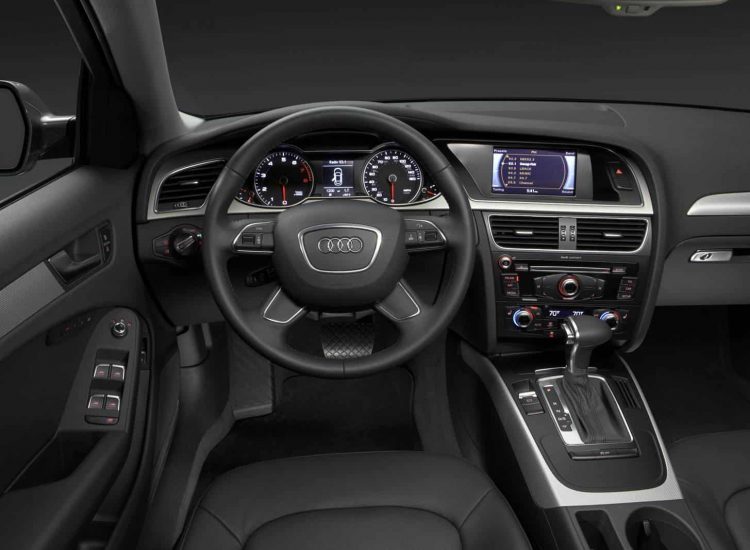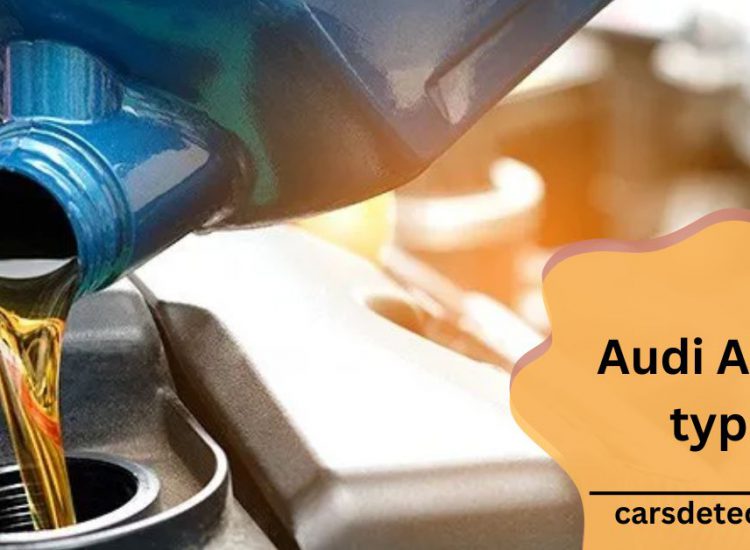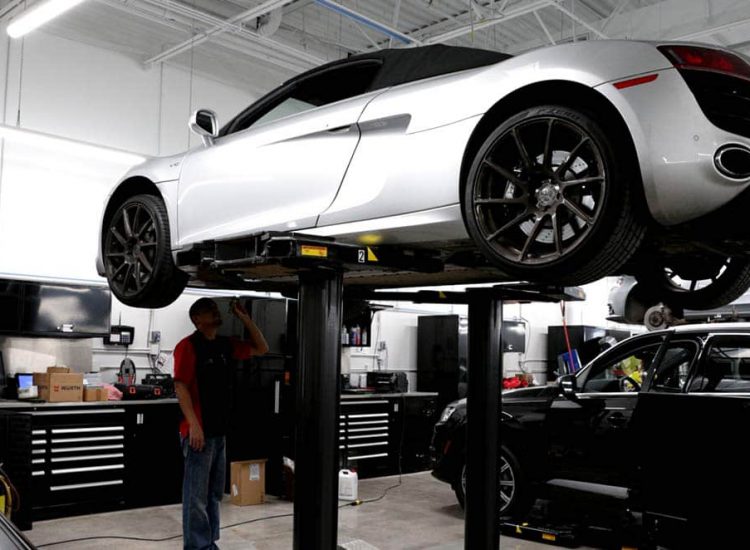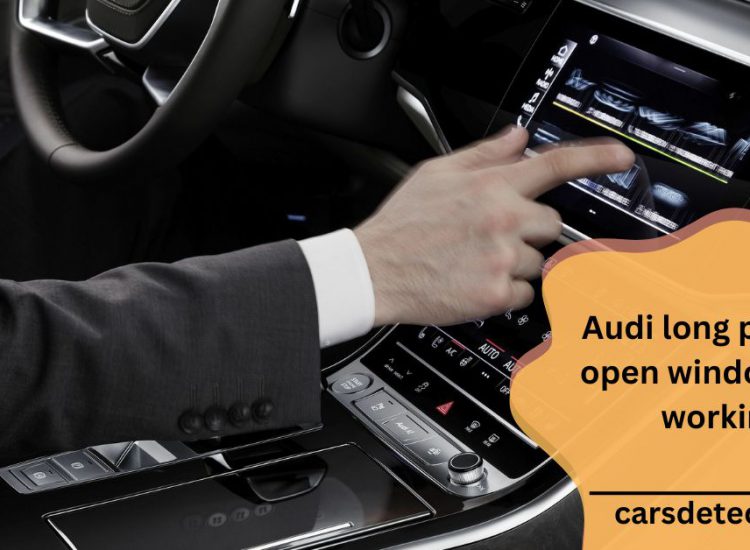Audi uses brakes from various brands, including Brembo, TRW (ZF Group), ATE, and Textar, depending on the model and specifications.
Toc
- 1. Brand Of Audi Brakes – Complete Overview!
- 2. What Do Audi Ceramic Brakes Involve? – A Deep Dive!
- 3. Benefits of Audi Brakes – Let’s start your informational journey with us!
- 4. Common issues and potential causes with Audi brakes – Let’s Check!
- 5. Sounds coming from the Audi brakes – You may Know!
- 6. Frequently Asked Questions:
- 7. Conclusion:
Audi employs brakes from a range of suppliers. Notably, they collaborate with brands such as Brembo for high-performance models, TRW from the ZF Group, ATE under Continental, and Textar for brake components across various models.
If you’re eager to delve deeper into this subject, embark on an enlightening journey with us.
Brand Of Audi Brakes – Complete Overview!
Audi, a leading luxury car manufacturer, collaborates with various brake suppliers to ensure optimal vehicle safety and performance. The choice of brake supplier often depends on the specific model and its intended use.
1. Brembo:
Brembo is a renowned brand in the high-performance brake sector. Brembo’s premium braking components are often found on Audi’s high-performance RS models and certain S-line variants. These brakes are engineered to offer superior stopping power and durability, catering to the demands of enthusiasts and performance-oriented drivers.
2. TRW (ZF Group):
TRW, now a part of the ZF Group, is recognised for its consistent quality and reliability in brake components. TRW provides both brake pads and discs for various Audi models. Their components meet Audi’s stringent standards, ensuring consistent braking performance and longevity.
3. ATE:
ATE, a brand under the Continental umbrella, has established itself as a trusted name in the braking industry. ATE supplies brake components that align with Audi’s commitment to safety and performance. Their products cater to a broad range of Audi vehicles, offering reliable braking solutions.

4. Textar:
Textar is renowned for producing high-quality brake pads known for their performance and durability. Audi has sourced brake pads from Textar for specific models. These pads are designed to deliver consistent braking performance, ensuring safety and comfort for Audi drivers.
Read Also: Can Volkswagen Service Audi – Schedule your service with us at Volkswagen now!
What Do Audi Ceramic Brakes Involve? – A Deep Dive!
Audi’s ceramic brakes deliver superior stopping capabilities with enhanced resistance to fading compared to conventional brake systems, all while being lighter in weight. Crafted from carbon fibre-reinforced ceramic, these brakes exhibit exceptional durability and resistance to wear.
The design features ventilated discs with specialized cooling channels, ensuring an extended lifespan surpassing steel brakes. Notably, they remain unaffected by rust or warping.

Their reduced weight, approximately 45 pounds lighter than standard systems, and impressive longevity of up to 185,000 miles underscores their premium quality. Even during intensive braking on challenging terrains like mountainous roads, they exhibit consistent performance without fading.
Although wet conditions might marginally affect braking efficiency, the ceramic system outperforms many traditional setups. A distinctive characteristic of these brakes is a potential noise during slow-speed braking, which is inherent to ceramic brake systems.
Read Also: Audi Vin Decoder Options List – Discover Every Detail!
Benefits of Audi Brakes – Let’s start your informational journey with us!
1. Superior Stopping Power:
- Efficiency: Audi brakes are engineered to provide rapid and consistent stopping power, ensuring driver confidence in various driving conditions.
- Safety: The enhanced stopping capabilities reduce stopping distances, potentially preventing accidents and ensuring safer driving experiences.
2. Enhanced Fade Resistance:
- Consistent Performance: Audi brakes are designed to maintain their effectiveness even under repeated or prolonged braking, minimising the risk of fade.
- Mountainous Driving: Particularly beneficial during intensive downhill driving, where consistent braking is crucial, ensuring safety on challenging terrains.
3. Lightweight Design:
- Improved Dynamics: The reduced weight of Audi brakes compared to traditional systems contributes to improved vehicle handling and responsiveness.
- Fuel Efficiency: The lighter components can lead to marginal fuel savings over time, enhancing the vehicle’s overall efficiency.
4. Durable Material Composition:
- Longevity: Audi brakes, often crafted from advanced materials like carbon fibre-reinforced ceramic, offer extended service lives, reducing the frequency of replacements.
- Resistance to Wear: These brakes exhibit exceptional resistance to wear and tear, ensuring consistent performance over prolonged periods.
5. Rust and Warp Resistance:
- Aesthetic Appeal: The materials used in Audi brakes, such as ceramic, ensure they remain rust-free, preserving their appearance and functionality.
- Consistent Performance: The absence of warping, especially under high-stress conditions, ensures that the brakes maintain their optimal performance levels throughout their lifespan.
Read Also: Audi tt mk1 Oil Type – Everything you Need to Know!
6. Wet-Condition Performance:
While wet conditions can affect any braking system somewhat, Audi brakes are designed to maintain reliable performance, often outperforming many traditional setups.

Common issues and potential causes with Audi brakes – Let’s Check!
When replacing your Audi brakes, opting for top-notch components is crucial. Audis are recognised for their performance-oriented nature, with varying performance levels across models.
For instance, the Audi A4 necessitates quality brake pads, rotors, and possibly callipers during replacements. Some high-performance models benefit from cross-drilled and slotted rotors to enhance heat dissipation. When installing new pads, selecting those equipped with sensors is essential.

These sensors are pivotal in alerting drivers about pad wear through dashboard indicators. Therefore, choosing subpar pads, which might interfere with the vehicle’s electronic system or mislead the onboard computer, is not advisable.
Sounds coming from the Audi brakes – You may Know!
1. Rust Accumulation on Rotors:
If an AudThe rotor can develop surface rust and remains inactive for extended periods, especially in wet conditions, the rotating can produce a grinding noise, although it’s primarily superficial.
2. Debris Interference:
Particles like sand or rocks can embed between brake pads and rotors. Over time, these can create grooves, potentially leading to noticeable grinding noises during braking.
3. Cleaning Agents Residue:
Cleaning chemicals on an Audi, particularly near the brakes, can inadvertently leave residues on the pads and rotors. This might produce residue from squeaking or squealing sounds relative to braking pressure.

4. Recommendation for Resolution:
After any cleaning activity, it’s advisable to drive a test drive. Engaging is advisable in several controlled panic stops; activating the Anti-Lock Braking System (ABS), can help dislodge any debris or residue. After letting the Audi cool down, another test drive can ascertain if the noise concern has been addressed.
Read Also: What Does Green Foot Mean on Audi? – Drive green, drive smart!
Frequently Asked Questions:
1. Do all Audi models use the same type of brakes?
No, Audi models can vary in their brake specifications based on the model’s performance level and specific requirements. It’s essential to consult your vehicle’s manual or an Audi specialist for precise information.
2. How can I maintain optimal braking performance in my Audi?
Regularly inspecting and replacing brake pads and rotors, avoiding aggressive driving, and adhering to Audi’s recommended maintenance schedule can help ensure optimal braking performance.
3. Do Audi brakes have issues with rust?
While all brakes can be susceptible to rust over time, Audi’s advanced brake systems, especially those with ceramic components, are designed to resist rust more effectively than traditional brakes.
Conclusion:
At the end of the conclusion,
Audi employs brake components sourced from manufacturers such as Brembo, TRW (ZF Group), ATE, and Textar, contingent on the specific model and its requirements.
















